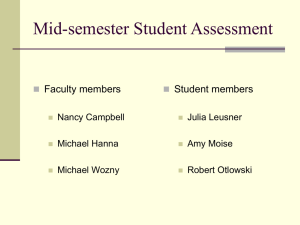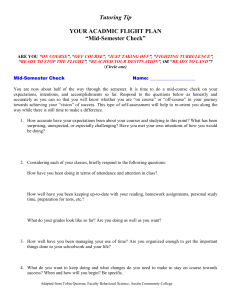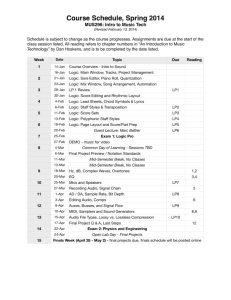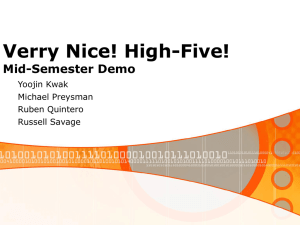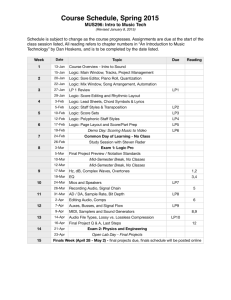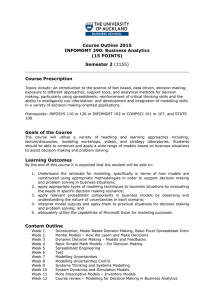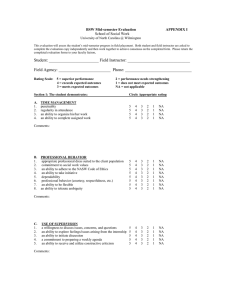Why Conduct a Mid-Semester Assessment course.
advertisement
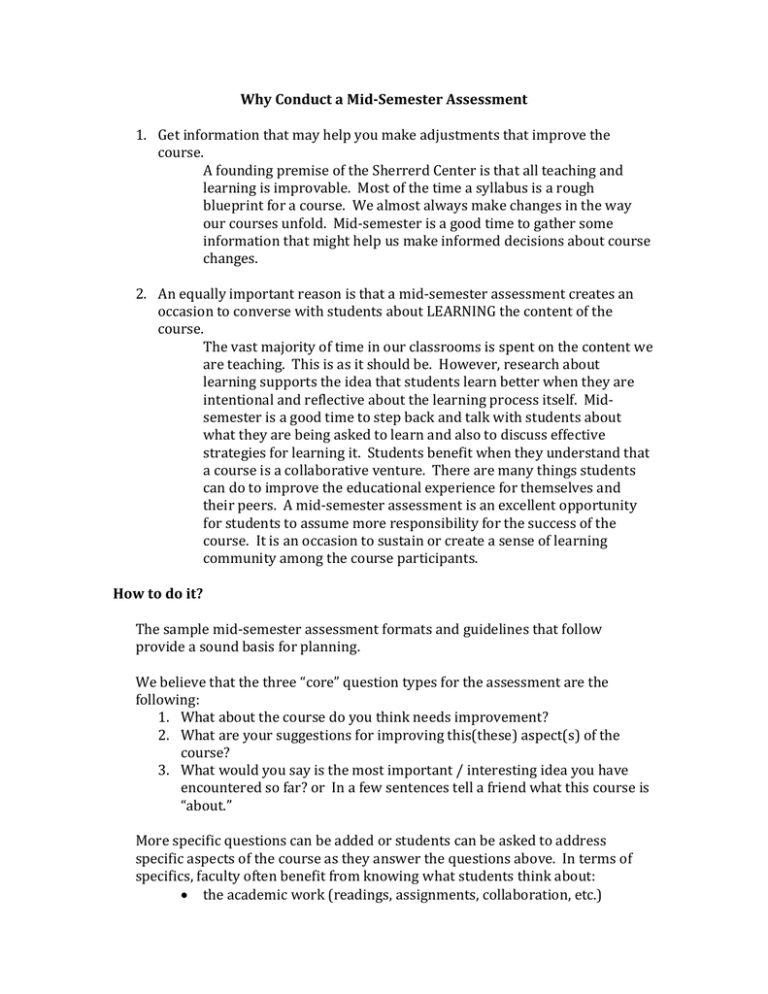
Why Conduct a Mid-Semester Assessment 1. Get information that may help you make adjustments that improve the course. A founding premise of the Sherrerd Center is that all teaching and learning is improvable. Most of the time a syllabus is a rough blueprint for a course. We almost always make changes in the way our courses unfold. Mid-semester is a good time to gather some information that might help us make informed decisions about course changes. 2. An equally important reason is that a mid-semester assessment creates an occasion to converse with students about LEARNING the content of the course. The vast majority of time in our classrooms is spent on the content we are teaching. This is as it should be. However, research about learning supports the idea that students learn better when they are intentional and reflective about the learning process itself. Midsemester is a good time to step back and talk with students about what they are being asked to learn and also to discuss effective strategies for learning it. Students benefit when they understand that a course is a collaborative venture. There are many things students can do to improve the educational experience for themselves and their peers. A mid-semester assessment is an excellent opportunity for students to assume more responsibility for the success of the course. It is an occasion to sustain or create a sense of learning community among the course participants. How to do it? The sample mid-semester assessment formats and guidelines that follow provide a sound basis for planning. We believe that the three “core” question types for the assessment are the following: 1. What about the course do you think needs improvement? 2. What are your suggestions for improving this(these) aspect(s) of the course? 3. What would you say is the most important / interesting idea you have encountered so far? or In a few sentences tell a friend what this course is “about.” More specific questions can be added or students can be asked to address specific aspects of the course as they answer the questions above. In terms of specifics, faculty often benefit from knowing what students think about: the academic work (readings, assignments, collaboration, etc.) how class time is spent how learning is assessed We recommend devoting class time for mid-semester assessment and spending some time discussing the results. Smith faculty who currently use mid-semester assessment or their own design are split on the question of anonymity.
